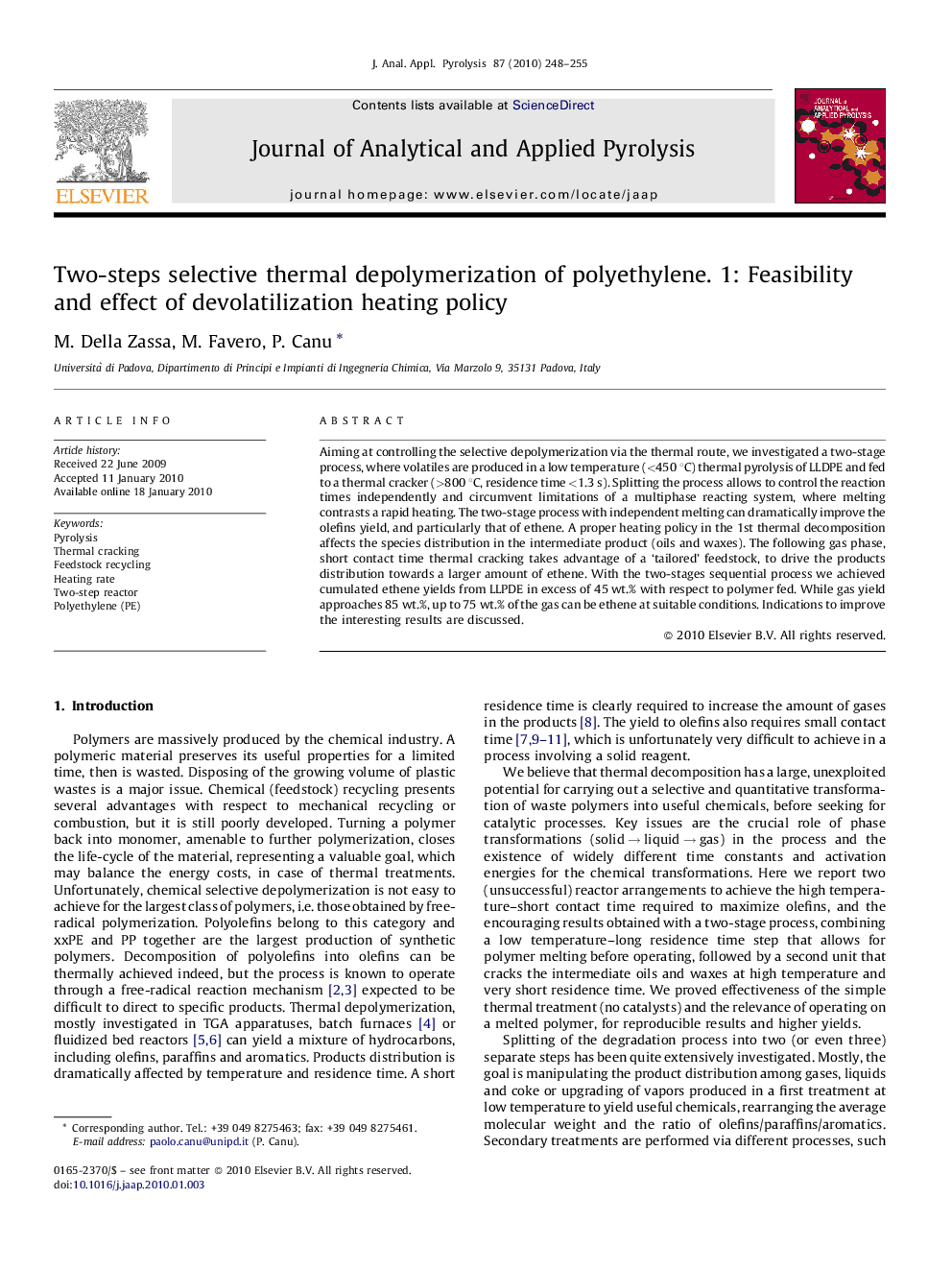| Article ID | Journal | Published Year | Pages | File Type |
|---|---|---|---|---|
| 1197714 | Journal of Analytical and Applied Pyrolysis | 2010 | 8 Pages |
Aiming at controlling the selective depolymerization via the thermal route, we investigated a two-stage process, where volatiles are produced in a low temperature (<450 °C) thermal pyrolysis of LLDPE and fed to a thermal cracker (>800 °C, residence time <1.3 s). Splitting the process allows to control the reaction times independently and circumvent limitations of a multiphase reacting system, where melting contrasts a rapid heating. The two-stage process with independent melting can dramatically improve the olefins yield, and particularly that of ethene. A proper heating policy in the 1st thermal decomposition affects the species distribution in the intermediate product (oils and waxes). The following gas phase, short contact time thermal cracking takes advantage of a ‘tailored’ feedstock, to drive the products distribution towards a larger amount of ethene. With the two-stages sequential process we achieved cumulated ethene yields from LLPDE in excess of 45 wt.% with respect to polymer fed. While gas yield approaches 85 wt.%, up to 75 wt.% of the gas can be ethene at suitable conditions. Indications to improve the interesting results are discussed.
